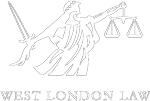At West London Law, we understand that trustee costs can quickly become overwhelming, impacting the value of the trust and the interests of its beneficiaries. We can help challenge and reduce your trustee’s costs, working to negotiate fairer fees and eliminate unnecessary charges.
We Have Over 20 Years Of Proven Client Satisfaction
Bankruptcy Restrictions
Do you need help with bankruptcy restrictions
You cannot to do the following if you have been made bankrupt –
It is a criminal offence to fail to comply with any of these restrictions so it is very important to make sure you are aware of what you can and cannot do.
Bankruptcy Restrictions FAQ'S
The official receiver or your trustee in bankruptcy may impose more serious restrictions such as an Income Payment Arrangement (IPA) or Income Payment Order (IPO), or a Bankruptcy Restrictions Order (BRO). The official receiver trustee in bankruptcy may require you to attend a public examination forcing you to attend court to provide answers to certain questions or provide documentation in relation to your finances.
A public examination is where the official receiver applies to the court for an order forcing you to attend court and respond to questions about your finances. This can happen at any time before the bankruptcy is discharged, which may be a reason the official receiver extends the initial 12 month period preventing you from obtaining your discharge from bankruptcy.
You may need help with an application to the court to set aside the order for examination. The court will consider several factors, such as whether the public examination would serve a useful purpose or whether you have co-operated fully with the official receiver or trustee in bankruptcy.
If the court finds that you have behaved in a dishonest or reckless manner, a Bankruptcy Restrictions Order (BRO) may be made against you.
This extends the time of the restriction which could remain for up to 15 years.
If you are subject to a BRO, you will also have extra restrictions. For example, you will not be able to be a Member of Parliament, a school governor or a local councillor, and you cannot exercise ‘right to buy’. Your creditors will also be informed of the BRO and your details will be published in a press notice issued by the court and appear on the insolvency register.
If you receive notice of bankruptcy restrictions being imposed you should immediately obtain expert advice in deciding whether to defend the application for the Bankruptcy Restriction order (BRO).
Alternatively, you can negotiate a shorter restriction period, by entering into a Bankruptcy Restriction Undertaking (BRU).
If the official receiver or trustee discovers you to have surplus money left over after each month after payment of your living costs, they may apply to the court for an Income Payment Order (IPO). This requires you to make payments for a three-year period, and you can still be chased for any missed payments after this time.
You maybe able to negotiate with your trustee to agree a lower monthly amount to be paid, known as an Income Payment Arrangement (IPA). This would be agreed out of court, and so you would avoid the costs of court proceedings.
